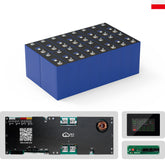Do Wireless Chargers Lose Efficiency Compared to Wired Chargers
Are Wireless Chargers Less Efficient Than Wired Chargers
In recent years, the debate over whether Wireless Chargers Efficient performance matches that of traditional wired chargers has gained significant attention. As wireless charging technology becomes more common, understanding its efficiency and how it compares to wired options is essential for consumers making informed choices. This article explores in-depth whether Wireless Chargers Efficient capabilities truly stand up to conventional charging methods.
- Understanding How Wireless Chargers Efficient Technology Works
- Are Wireless Chargers Efficient Compared to Wired Chargers
- Factors That Impact How Wireless Chargers Efficient Performance Compares
- Advantages of Wireless Chargers Efficient Technology Despite Limitations
- Technological Advancements Making Wireless Chargers Efficient More Competitive
- Practical Scenarios Comparing How Wireless Chargers Efficient Systems Perform
- Environmental Impact Considerations for Wireless Chargers Efficient Use
- Addressing Common Myths About Wireless Chargers Efficient Capabilities
- Future Outlook for Wireless Chargers Efficient Technology
- How to Maximize Wireless Chargers Efficient Performance
- Weighing the Pros and Cons of Wireless Chargers Efficient Solutions
- Frequently Asked Questions About Wireless Chargers Efficient Use
Understanding How Wireless Chargers Efficient Technology Works
Before comparing performance, it's important to understand how Wireless Chargers Efficient designs function.
Basics of Wireless Charging
Wireless charging uses electromagnetic fields to transfer energy between two devices. Typically, a charging pad generates a magnetic field that transmits power to a receiver embedded in the smartphone or device.
Types of Wireless Charging Technologies
Qi Standard: The most widely adopted, supporting major brands like Apple, Samsung, and Google.
Resonant Inductive Charging: Allows greater distance between charger and device.
Radio Frequency (RF) Charging: Emerging technology for small IoT devices.
Are Wireless Chargers Efficient Compared to Wired Chargers
When considering whether Wireless Chargers Efficient performance matches wired options, various factors come into play.
Energy Transfer Efficiency
Wired chargers typically offer energy transfer efficiencies of around 85-95%, while Wireless Chargers Efficient rates often fall between 60-80%. Losses occur due to heat dissipation and imperfect alignment.
Charging Speeds
Wired Chargers: Fast-charging technologies like USB-C PD or proprietary systems (e.g., Apple MagSafe with cable) can deliver high power outputs.
Wireless Chargers Efficient: Newer models support faster charging, but generally lag behind top-tier wired alternatives.
Convenience vs. Efficiency Trade-Off
Wireless charging offers unmatched convenience, but at the cost of lower efficiency. Understanding these trade-offs is essential when evaluating Wireless Chargers Efficient benefits.
>>See also 18650 and 14500 Battery Differences and Common Questions
Factors That Impact How Wireless Chargers Efficient Performance Compares
Several variables influence how Wireless Chargers Efficient systems perform relative to wired charging.
Device Compatibility
Some devices optimize wireless charging better than others.
Efficiency varies based on device model, firmware, and battery health.
Charger Quality and Certification
Certified Qi chargers ensure higher efficiency.
Cheap, uncertified models may severely underperform.
Environmental Conditions
Heat buildup reduces Wireless Chargers Efficient effectiveness.
Foreign objects or misalignment between the pad and device hinder performance.
Advantages of Wireless Chargers Efficient Technology Despite Limitations
While wired charging remains more efficient, Wireless Chargers Efficient designs offer notable benefits beyond raw performance.
Convenience and Simplicity
No need to plug and unplug cables.
Reduces wear on charging ports.
Safer Connections
Minimizes risk of electrical shorts or sparks.
Eliminates exposed metal contacts.
Expanding Ecosystem
Growing availability of wireless charging stations in cars, cafes, and airports.
Furniture with integrated Wireless Chargers Efficient modules becoming common.
Technological Advancements Making Wireless Chargers Efficient More Competitive
Innovations are closing the gap between Wireless Chargers Efficient systems and wired chargers.
Improved Coil Design and Materials
More precise alignment increases energy transfer.
Use of better conductors reduces heat loss.
Adaptive Charging Algorithms
Dynamically adjust power delivery based on device needs.
Enhance safety and efficiency.
Faster Wireless Charging Standards
15W Qi chargers now standard for many phones.
Proprietary systems like MagSafe improve both alignment and efficiency.
Practical Scenarios Comparing How Wireless Chargers Efficient Systems Perform
Understanding when Wireless Chargers Efficient charging is appropriate requires examining real-world use cases.
Overnight Charging
Efficiency is less critical when time isn't a factor.
Wireless convenience shines, especially for bedside use.
Quick Top-Ups During the Day
Wired fast charging remains superior for speed.
Wireless Chargers Efficient pads ideal for casual top-ups at desks or cafes.
Travel and Portability
Carrying cables provides maximum efficiency.
Wireless charging adds bulk but simplifies connections in vehicles or public spaces.
Environmental Impact Considerations for Wireless Chargers Efficient Use
Efficiency directly relates to energy consumption and environmental impact.
Energy Wastage
Lower efficiency means more electricity drawn from the grid.
Using Wireless Chargers Efficient systems responsibly minimizes unnecessary power loss.
Battery Longevity
Heat generated during wireless charging can degrade batteries faster.
Choosing high-quality, certified Wireless Chargers Efficient products mitigates risks.
Addressing Common Myths About Wireless Chargers Efficient Capabilities
Misinformation can distort perceptions of Wireless Chargers Efficient designs.
Myth 1: Wireless Charging Severely Damages Batteries
Modern devices include safeguards to prevent damage.
Excess heat remains a concern, but proper use avoids issues.
Myth 2: Wireless Charging Is Always Slower
Advances have narrowed speed gaps.
High-quality chargers now approach wired speeds in some scenarios.
Myth 3: Wireless Charging Is Inherently Wasteful
While less efficient, incremental improvements reduce losses.
Environmental impact depends on usage patterns and product choices.
Future Outlook for Wireless Chargers Efficient Technology
The trajectory of Wireless Chargers Efficient development suggests ongoing improvements.
Emerging Technologies
Over-the-air charging for small devices.
Higher wattage standards pushing beyond 15W.
AI-driven efficiency optimizations.
Market Adoption Trends
Integration into consumer electronics, furniture, and vehicles.
Growing demand for seamless, cable-free experiences.
Research and Innovation
Universities and companies exploring new materials.
Enhanced coil geometries and smarter power management.
How to Maximize Wireless Chargers Efficient Performance
Practical steps ensure you're getting the most from Wireless Chargers Efficient setups.
Use Certified Products
Look for Qi or equivalent certifications.
Avoid cheap, uncertified chargers.
Optimize Placement
Center the device precisely over the charging pad.
Remove cases or accessories that interfere with alignment.
Manage Temperature
Avoid charging in hot environments.
Select chargers with built-in cooling features.
Update Device Software
Manufacturers release updates improving charging protocols.
Ensure your device runs the latest firmware.
>>See also How to find the manufacturing year of your EZGO golf cart by serial number
Weighing the Pros and Cons of Wireless Chargers Efficient Solutions
Making informed choices means balancing convenience and efficiency.
Pros
Seamless, cable-free experience.
Expanding ecosystem of compatible devices and surfaces.
Improved durability of device charging ports.
Cons
Lower energy transfer efficiency compared to wired charging.
Slower charging speeds, particularly for older models.
Potential heat buildup affecting battery health.
Frequently Asked Questions About Wireless Chargers Efficient Use
How Much Less Efficient Are Wireless Chargers?
Generally, Wireless Chargers Efficient systems lose 15-40% more energy than wired options, depending on setup quality.
Do Wireless Chargers Efficient Designs Improve Battery Lifespan?
Properly used, they shouldn't harm batteries, but excess heat can accelerate degradation.
Can I Use My Device While It Charges Wirelessly?
Yes, but repositioning may disrupt alignment, reducing efficiency.
Are There Situations Where Wireless Chargers Efficient Solutions Are Preferred?
Yes, for overnight charging, public spaces, or vehicles where convenience outweighs maximum efficiency.
How Can I Tell if My Wireless Chargers Efficient System Is Working Correctly?
Most devices display charging indicators. Ensure alignment and check for overheating.
Are Wireless Chargers Efficient Enough for Everyday Use
The question "Are Wireless Chargers Efficient enough compared to wired chargers?" depends largely on your priorities. If raw speed and maximum energy efficiency are critical, wired options remain superior. However, for daily convenience, reduced cable wear, and evolving technology, Wireless Chargers Efficient solutions offer compelling advantages. As innovation continues, the gap between wireless and wired efficiency is narrowing, making wireless charging an increasingly practical choice for modern users.
In short, while Wireless Chargers Efficient technology may not yet fully match wired charger efficiency, ongoing improvements suggest a future where wireless charging competes more favorably on all fronts.
























Leave a comment
All blog comments are checked prior to publishing